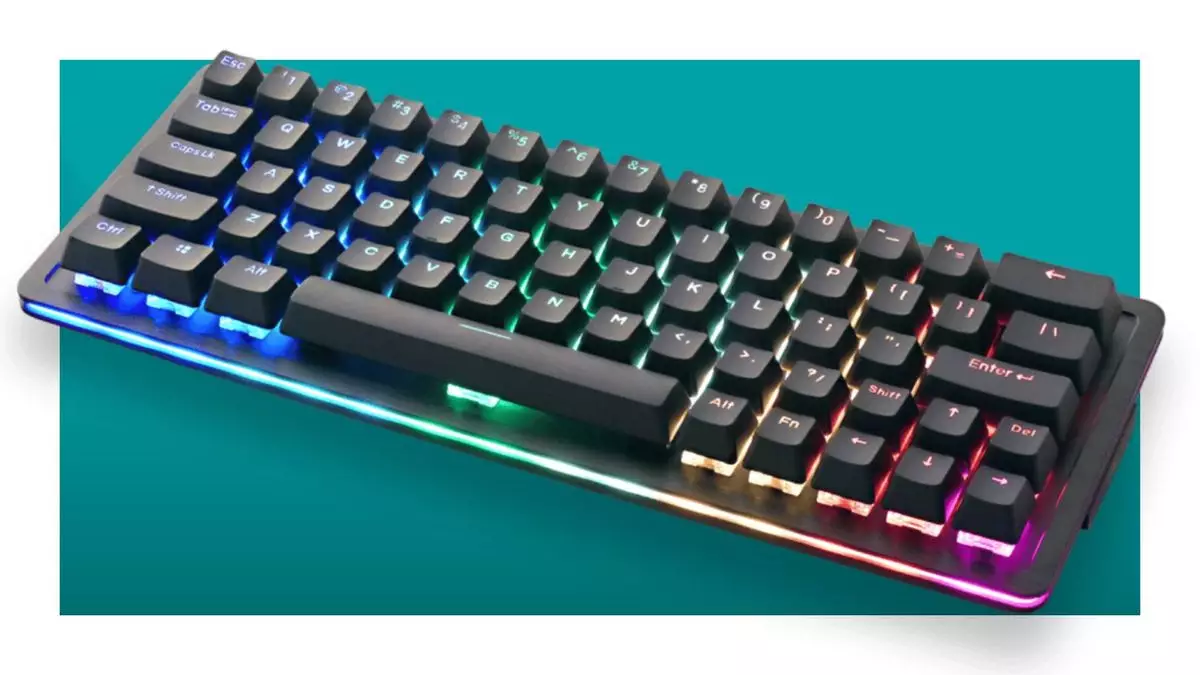Gaming keyboards have undergone a significant evolution, with enthusiasts demanding high-performance features, customizable options, and aesthetic appeal. Among the multitude of choices available to consumers, one model stands out for its standout design and competitive pricing: the Mountain Everest 60. This article explores why this compact keyboard has received such high praise, along with some aspects that potential buyers might want to consider.
When delving into the realm of compact keyboards, the Mountain Everest 60 quickly positions itself as a leading option. Not only is it celebrated for its compact size, making it ideal for gamers with limited desk space, but it also packs an impressive range of features that cater to both casual players and hardcore gamers. The Everest 60 is currently available for an attractive price point of $50. This pricing is especially appealing given the functionality and customization options it provides.
The Everest 60 boasts a variety of switch options, which are fundamental to a keyboard’s performance. Although the review model featured the Mountain Tactile 55 switches—a fan favorite—the keyboard accommodates various alternatives such as the Linear 45 and Linear 45 Speed switches. This flexibility in choice allows each gamer to tailor their keyboard according to their personal preference for tactile feedback. The keyboard’s hot-swappable capability further amplifies this adaptability, granting users the freedom to experiment with their switches as they see fit.
An often overlooked aspect of keyboards is the materials and construction that contribute to their overall feel and longevity. The Mountain Everest 60 excels in this department, offering a robust build that can withstand daily wear and tear. Whether you’re lugging it to a gaming tournament or your local coffee shop, this keyboard is designed to endure.
Moreover, one standout feature is its sound dampening. Many contemporary gaming keyboards overlook this aspect, leading to a cacophony while typing. The Everest 60, however, features two layers of foam coupled with a silicone layer to ensure a peaceful typing experience. This attention to acoustic detail not only enhances the user experience but also aligns with what enthusiasts demand from a premium keyboard.
Despite the plethora of advantages, potential buyers should be aware of some limitations. The Everest 60 follows a 60% layout—a preferred style for many gamers looking to save space. However, this layout might be off-putting for users accustomed to full-size keyboards, who rely on dedicated function and navigation keys. To bridge this gap, Mountain offers a modular numpad add-on for an extra $25. This option allows users to have both functionality and compactness, but it may feel like an additional expense for those looking for an all-in-one solution.
Another aspect to consider is the keyboard’s software interface. While it serves its basic functions adequately, it may not rival dedicated software from other high-end brands. Gamers who depend heavily on intricate macros or advanced customizations might find this feature lacking, which could influence their overall satisfaction with the product.
The Mountain Everest 60 stands as an exemplary choice for gamers seeking a reliable, compact keyboard that doesn’t skimp on performance or quality. With its customizable switches, robust build, and innovative sound dampening, it’s no surprise that it garnered a glowing 93% review score from reputable sources. While it does come with some minor downsides—namely, its compact layout and basic software—these issues may be outweighed by the overall value it provides. At just $50, the Mountain Everest 60 is an attractive choice for anyone looking to enhance their gaming setup. Ultimately, for those serious about gaming, this keyboard proves to be a worthy investment in their toolkit.

